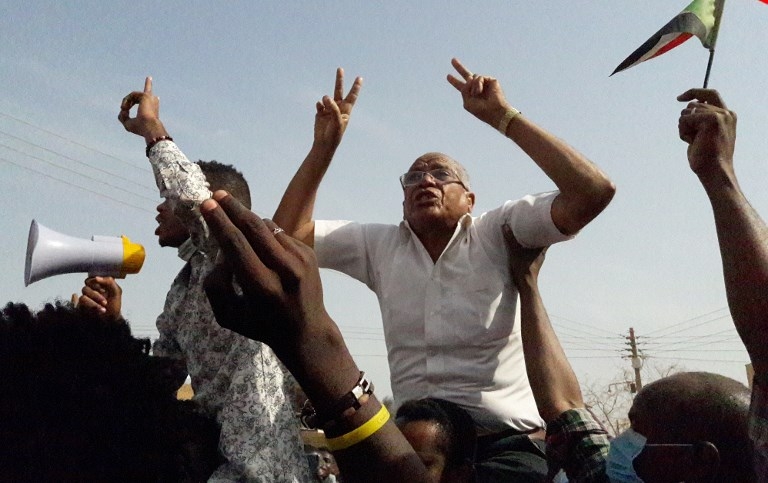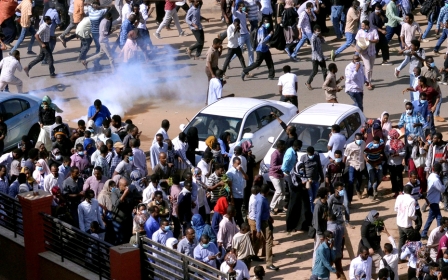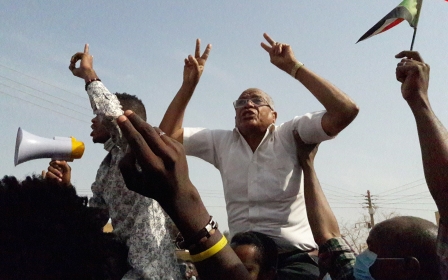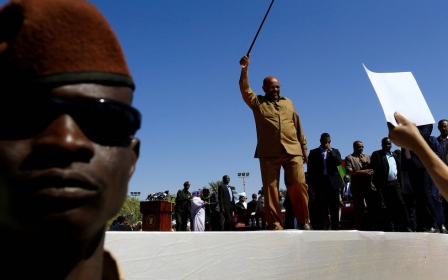Sudan's PM says voice of demonstrators should be 'respected'

Sudan's prime minister said on Saturday that an ongoing protest campaign should "be respected" but insisted only an election could decide the government's fate.
"In my view, the voice of demonstrators needs to be respected," Moutaz Mousa Abdallah told reporters in the capital Khartoum, according to AFP.
"It is a respectable youth movement." But "me and my government believe that the only way to change the government is through elections," he said.
Deadly protests have rocked the east African country since 19 December after the government announced a tripling of bread prices. The protests swiftly escalated into nationwide demonstrations against President Omar al-Bashir's three-decade rule.
New MEE newsletter: Jerusalem Dispatch
Sign up to get the latest insights and analysis on Israel-Palestine, alongside Turkey Unpacked and other MEE newsletters
Officials say 30 people have died in protest-related violence since demonstrations erupted. Human Rights Watch says at least 51 protesters have been killed in the violence.
Mousa Abdallah, who was appointed by Bashir in a reshuffle last September, said that the protest campaign - which has seen near-daily demonstrations - should be viewed with "an open mind".
Anger has mounted across Sudan for years over deteriorating living conditions and growing hardship.
Mousa Abdallah said protesters' expectations of better economic conditions represented a "legitimate demand".
Sudan has been rapidly expanding its money supply in an attempt to finance its budget deficit, but that has caused spiralling inflation and a steep decline in the value of the country's currency on foreign exchange markets, Reuters said.
The protest campaign has been led by the Sudanese Professionals Association, an umbrella group of teachers, doctors and engineers.
Analysts say the campaign has become the biggest challenge yet to Bashir, who swept to power in an Islamist-backed coup in 1989.
Bashir, 75, is wanted by the International Criminal Court over charges, which he denies, of masterminding genocide in the Darfur region. He has been lobbying to have Sudan removed from a list of countries, along with Syria, Iran and North Korea, that Washington considers state sponsors of terrorism.
Still, Bashir is considering running for a third elected presidential term in polls due next year.
He has likewise repeatedly said only an election can yield a change of government.
Mousa Abdallah said on Saturday: "We are ready to offer a transparent election process."
Protesters chanting "freedom, peace, justice," the rallying cry of the protest movement, have demanded that the president resign.
Bashir has remained defiant, addressing loyalist counter-demonstrations and visiting regional allies to seek support.
Middle East Eye delivers independent and unrivalled coverage and analysis of the Middle East, North Africa and beyond. To learn more about republishing this content and the associated fees, please fill out this form. More about MEE can be found here.




